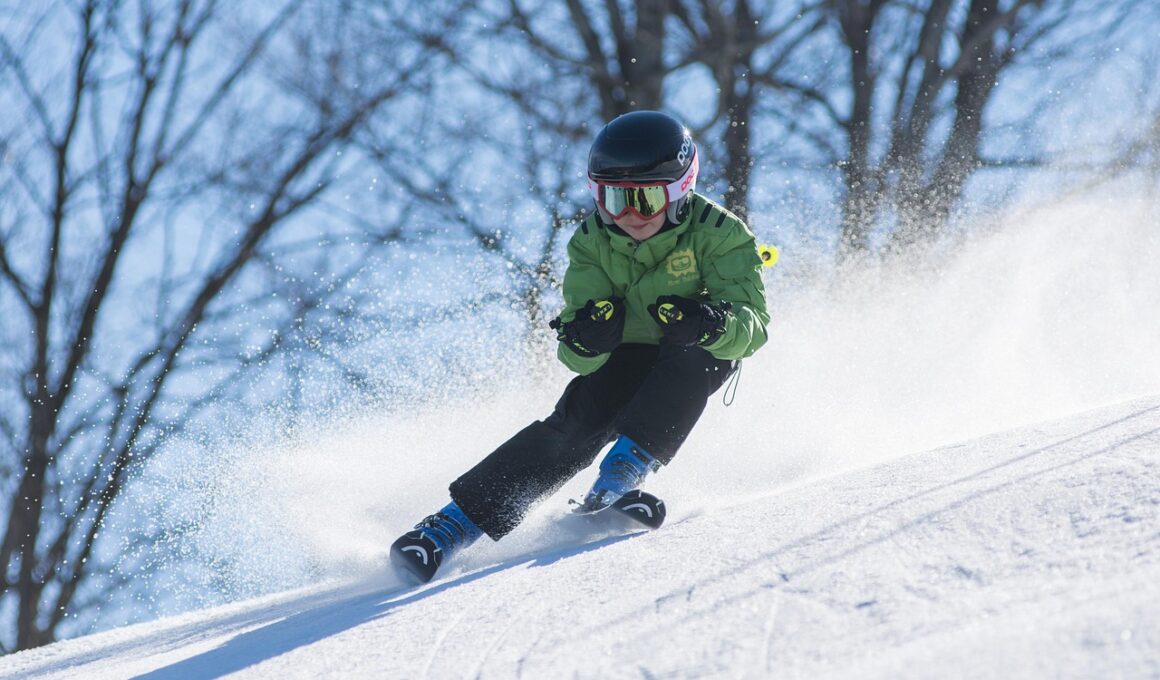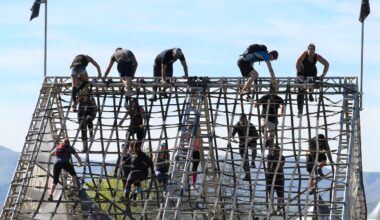How to Plan Your First Ski Trip
Planning your first ski trip can be an exhilarating yet intimidating experience. To start, selecting the right ski resort is vital. Consider factors such as location, terrain, and snow conditions. Research different resorts to find one that caters to beginners, with easy slopes and good ski schools. Check online reviews and guides, and be sure to look for discounts and packages that may be available for first-time skiers. Popular destinations include Aspen, Vail, and Park City. Once you’ve chosen your resort, the next step is deciding on the duration of your visit. A long weekend is ideal for beginners as it allows ample time to adjust, take lessons, and practice skiing without feeling rushed. It’s also a good idea to keep an eye on the weather forecast. Snow can greatly impact your skiing experience. Don’t forget to consider your budget. Clarify how much you’re willing to spend on lift tickets, accommodations, and gear rentals. Finally, ensure you have appropriate clothing to stay warm and dry on the slopes. Ski trips require careful consideration but can lead to unforgettable memories.
Once you have a destination and a budget, the next step in your ski trip planning involves booking accommodations and transportation. Decide whether you prefer to stay on-site at the resort or at a nearby lodging facility. On-site accommodations usually offer the advantage of convenience and easy access to the slopes. However, nearby lodges might provide a quieter atmosphere and potential savings. Look for reviews and ratings on travel sites like TripAdvisor to guide your choice. Simultaneously, you should consider how you will get to your ski destination. If using a car, ensure your vehicle is winter-ready, with snow tires and emergency supplies. Alternatively, if flying, research nearby airports and shuttle services that can transport you directly to the resort. Pre-booking rentals can also save time and money. Look for rentals that cater to beginners and ensure they fit properly to enhance your comfort and performance on the slopes. A little research goes a long way in securing a smooth travel experience, letting you focus on skiing and enjoying your trip.
Essential Ski Gear
Having the right ski gear is crucial for a successful trip. For beginners, it may be worthwhile to rent skis, boots, and poles until you’re more comfortable with your skills. Most ski resorts and local shops offer comprehensive rental packages that can provide you with tailored equipment. Don’t overlook the importance of choosing quality clothing as well. Dress in layers, starting with moisture-wicking base layers, then insulating mid-layers, and waterproof outer layers. Specific items to include are a ski helmet for safety, goggles for visibility, and warm gloves. Remember that ski socks are specially designed to provide comfort and warmth without causing blisters. Another important consideration is ski safety gear. A helmet is non-negotiable for all levels of skiing, particularly for beginners. In addition, consider using wrist guards if you feel more secure with them. You should also bring sunscreen and lip balm, as UV rays are stronger on the slopes and can lead to sunburn. Being properly equipped allows you to focus on improving your skills and enjoying the fantastic winter experience.
As your trip approaches, it’s essential to familiarize yourself with ski etiquette and safety practices. Before hitting the slopes, take a moment to learn about ski signals and right-of-way rules to ensure a safe experience for everyone. Remember that skiers above you on the slope have the right of way; always be aware of your surroundings to avoid collisions. Additionally, obey boundary markings, as they indicate areas that may not be safe for skiing. Knowing how to fall safely is another important skill, particularly for beginners. Try to fall to the side and avoid using your arms to break your fall, as that may lead to injuries. Staying hydrated while skiing is also crucial. Make sure to drink plenty of water throughout your day on the slopes. Eating nutritious snacks will provide necessary energy to keep you skiing efficiently during your time outdoors. Breaks are important; rest when needed to prevent fatigue. Understanding basic safety principles enhances your ski trip and equips you with skills for fun and exciting slopes ahead.
Ski Lessons and Skills
For most first-time skiers, taking lessons is highly recommended to maximize your fun and minimize potential risks. Ski instructors can provide essential skills that facilitate a smoother learning curve. Look for beginner group lessons or private lessons based on your preference and budget. Consider the type of lessons available; some resorts may offer specialized programs for children or families. Use this opportunity to ask questions and pay attention during the lessons to grasp fundamental techniques. Key skills to learn include how to turn, stop safely, and utilize the ski lifts properly. It’s also important to practice these skills until they feel second nature. After your lessons, take the time to explore the slopes gradually. Stick to beginner trails initially to build confidence before progressing to more advanced areas as you gain proficiency. Following the instruction of your instructor and practicing regularly will greatly improve your skills. Don’t hesitate to seek feedback as you progress, either from instructors or more experienced friends. Continuous improvement leads to greater enjoyment and confidence during your ski trip.
Another critical aspect of planning your ski trip is to build your stamina before you hit the slopes. Skiing is a physically demanding activity that requires strong leg muscles, balance, and endurance. Begin a fitness routine a few weeks in advance that consists of cardiovascular exercises, strength training for the legs specifically, and flexibility workouts. Activities that can be particularly beneficial include walking, jogging, cycling, and bodyweight exercises, such as squats and lunges. Consider incorporating yoga or stretching sessions to enhance your balance and flexibility. It’s also wise to consult with a fitness professional or personal trainer experienced in ski preparation. They can provide tailored recommendations for your fitness plan and ensure you’re physically prepared for the dynamic nature of skiing. Additionally, don’t forget to practice core workouts since a strong core is crucial for maintaining balance and stability while skiing. As you approach your trip, make sure to listen to your body. Monitor your progress and adjust your workouts accordingly to ensure you are in prime condition. This preparation will lead to an enjoyable and successful skiing experience.
Enjoying the Experience
Lastly, embracing the experience is vital for a fulfilling ski trip. While improving skills is important, remember to take moments to appreciate the stunning alpine scenery and camaraderie with fellow skiers. Encourage your friends or travel companions to join you in leisure activities beyond skiing. Many resorts offer additional amenities, such as spa treatments, snowshoeing, or ice skating. Consider exploring the local dining options for a taste of the region’s cuisine; treat yourself to hearty meals after a long day on the slopes. Capture memories through photos and engage with family and friends for shared experiences. Just remember to stay safe and follow skiing etiquette during all activities. As beginner skiers, there will be ups and downs, but it’s all part of learning. A positive mindset will help you enjoy your time and build anticipation for your next trip. Making the most out of your ski excursion not only enhances your skills but also creates lasting connections with loved ones. In conclusion, the essence of skiing comes from the adventure and experiences shared on the slopes.
The journey of planning your first ski trip can transform into unforgettable memories through preparation, safety, and camaraderie. Enjoy every moment of your ski adventure, whether you’re on the slopes, in the lodge, or enjoying the winter culture around you. By keeping these essential tips in mind, you’ll ensure that your first ski excursion is rewarding and filled with excitement. Most importantly, don’t forget to have fun!


